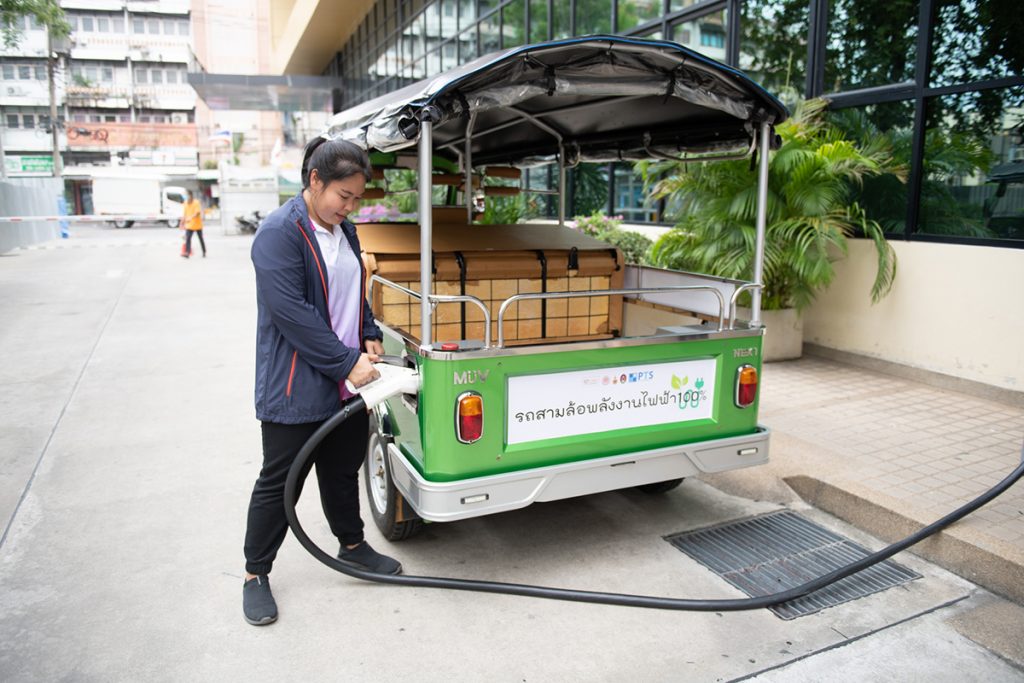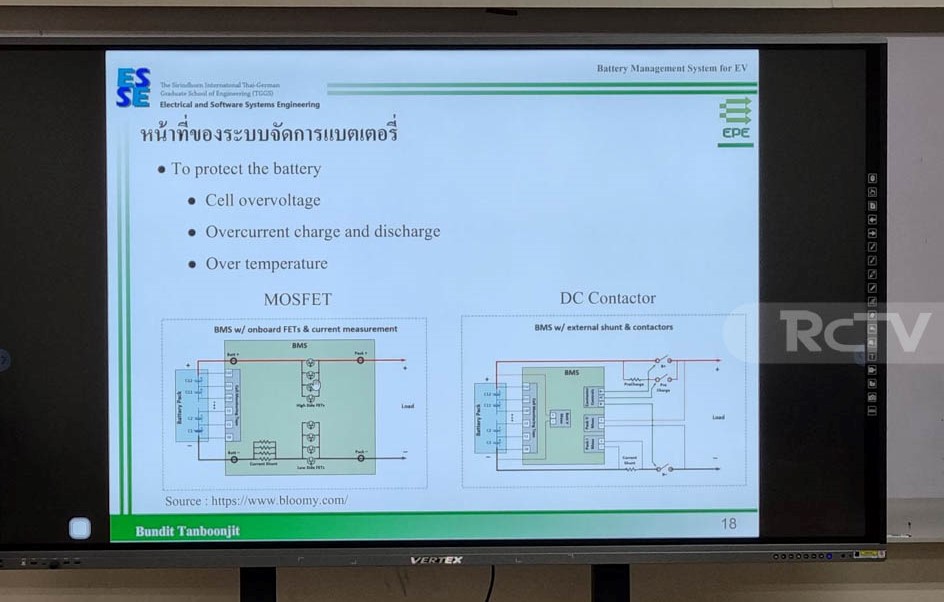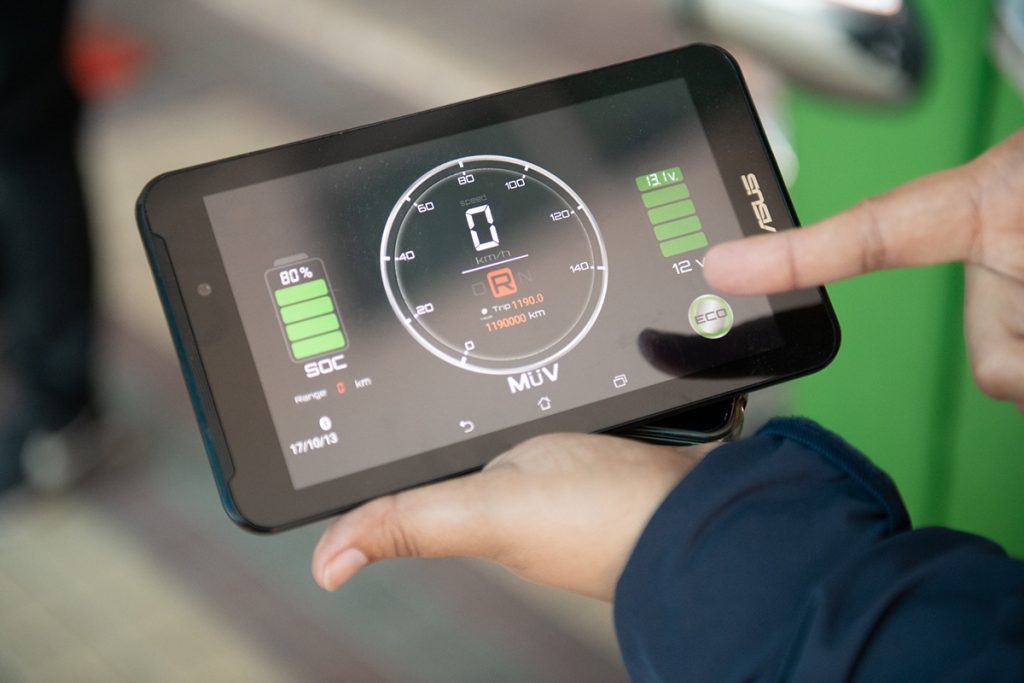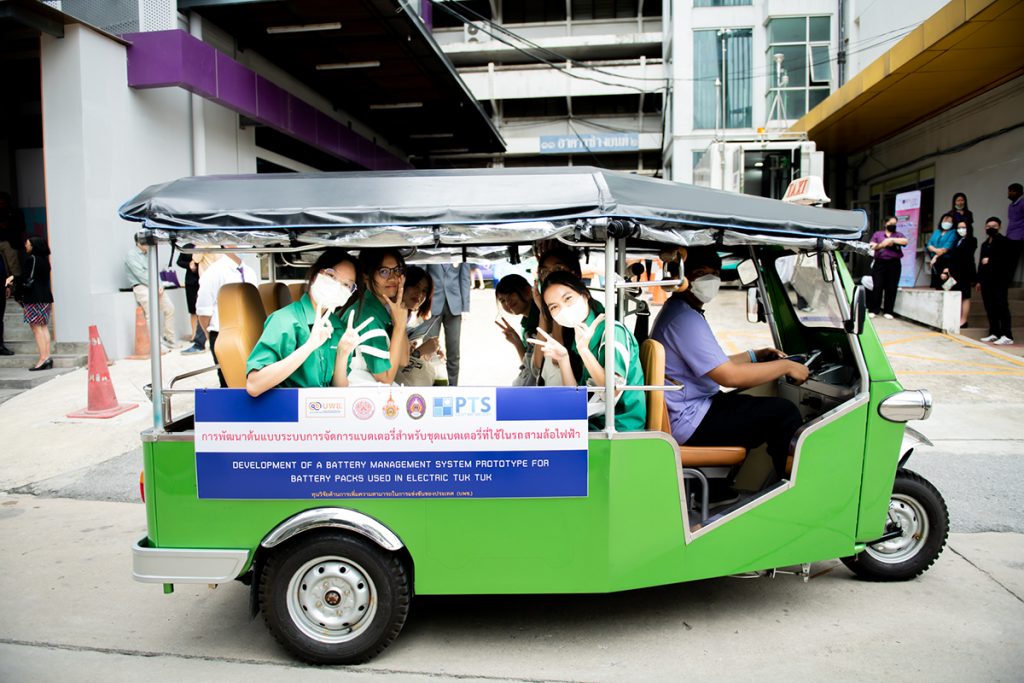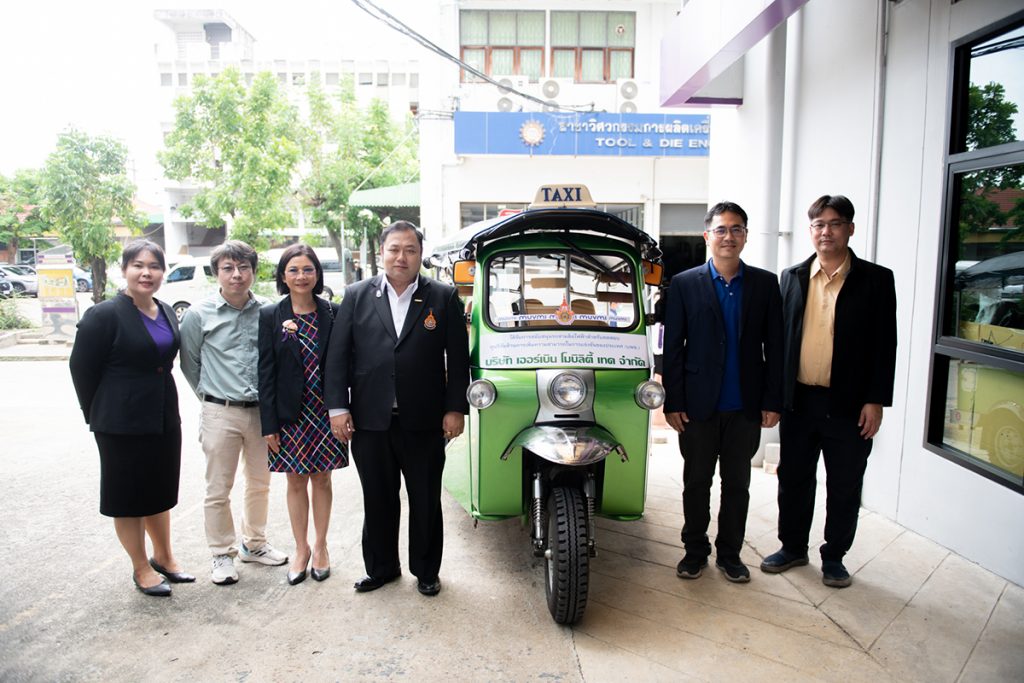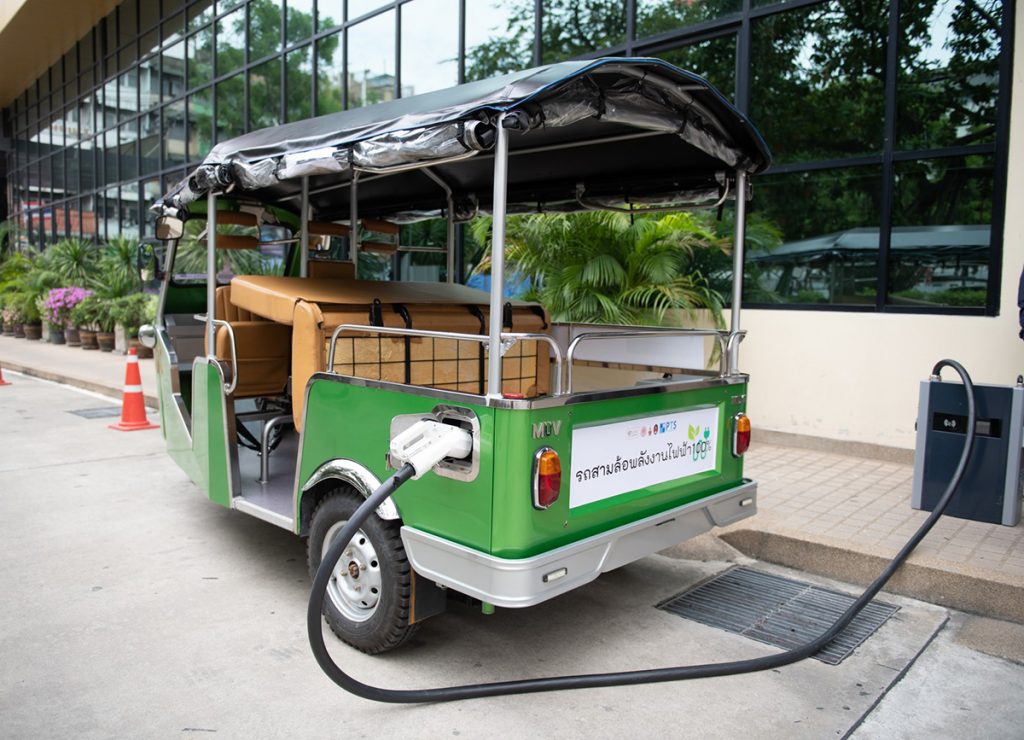Amid pollution issues and the PM2.5 air quality problem, Thailand has introduced a roadmap and declared standing points to reduce greenhouse gas emissions to net-zero by the year 2608 according to the United Nations Framework Convention on Climate Change (UNFCCC). In light of this, the government set a crucial strategy to increase electric car production to 30% of total vehicle production by the year 2573. However, the push for electric cars in Thailand has faced limited popularity due to high prices and ongoing debates, especially concerning maintenance, particularly battery-related concerns. Consequently, five organizations, including Associate Professor Kamolnint Phusang, faculty member of Electrical Engineering at the Faculty of Industrial Education and Technology, RMUTP; Mr. Bandit Tanboonjit, a researcher at the Sirindhorn International Institute of Technology, Thai-German Graduate School of Engineering; Associate Professor Narong Thammapitak, faculty member of Electrical Engineering, Faculty of Science and Technology, RMUTV; Associate Professor Dr. Sumet Liphirunjpong, a faculty member of Electrical Technology at the Faculty of Industrial Technology, KMUTNB; and PTES Corporation Limited (joint venture) have jointly conducted research to develop a prototype for Battery Management Systems (BMS) for lithium-ion batteries. This initiative aims to develop an environmentally friendly industry supported by the Board of Investment (BOI) under the research plan for future transportation and robotics and automation industries for the fiscal year 2023.
